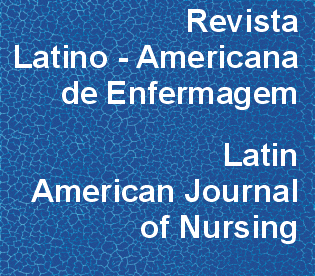Communication between the elderly person and the Family Health Team: is there integrality?
DOI:
https://doi.org/10.1590/S0104-11692013000400008Abstract
OBJECTIVE: to verify the forms of communication used in four Primary Health Units with Family Health Program teams in Porto Feliz, São Paulo, and how they impact in the care and control of the health of elderly people. METHOD: this qualitative study sought to capture the communication between elderly people and healthcare professionals. Interviews were conducted with 20 elderly people of both sexes. RESULTS: from the discourses and observations, assertive communication and blocked communication emerged as the central analysis themes, the verbal and nonverbal elements of which, unveiled subjectivity of the communication process, of the local culture and of the psychosocial factors positively and negatively contributing to the healthcare for elderly people. The nursing teams of the Family Health Strategy showed forms of communication that favored the adherence of the elderly people to the care and control of their health. Negatives aspects did not have completely prejudicial consequences, however, should be avoided, in order to facilitate integral care to elderly people. CONCLUSION: it is worth reinforcing the need for improvement of the nursing team and other healthcare professionals regarding health communication as an innovative technology, bringing credibility to the health promotion and prevention programs with elderly users.Downloads
Download data is not yet available.
Downloads
Published
2013-07-01
Issue
Section
Original Articles
License
RLAE’s authorship concept is based on the substantial contribution by each of the individuals listed as authors, mainly in terms of conceiving and planning the research project, collecting or analyzing and interpreting data, writing and critical review. Indication of authors’ names under the article title is limited to six. If more, authors are listed on the online submission form under Acknowledgements. The possibility of including more than six authors will only be examined on multicenter studies, considering the explanations presented by the authors.Including names of authors whose contribution does not fit into the above criteria cannot be justified. Those names can be included in the Acknowledgements section.
Authors are fully responsible for the concepts disseminated in their manuscripts, which do not necessarily reflect the editors’ and editorial board’s opinion.
How to Cite
Communication between the elderly person and the Family Health Team: is there integrality? . (2013). Revista Latino-Americana De Enfermagem, 21(4), 884-890. https://doi.org/10.1590/S0104-11692013000400008



